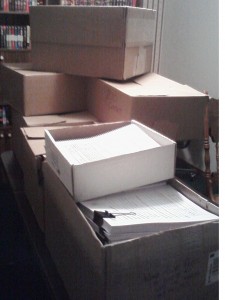Everybody has an opinion. Oftentimes, a person’s opinions and ideas about a given subject will contradict those of other people. Writing is no exception.
Take any topic within writing, ask a bunch of writers what they think about it, and the answers you’ll receive will be all over the board. It doesn’t matter if the topic is agents, dialogue tags, or the best hours of the day to write–opinions on such things will vary widely. But does this mean there is no one right answer to the question you’re asking?
At first, it might be easy to think so. After all, what these authors are doing obviously works well for them. But there’s the rub: what they’re doing works well in their situation.
Now, I’m not advocating the position that there are no universal truths in the world or in writing, which I would argue is a philosophically invalid and practically worthless position. What I am advocating is the notion that these universal truths only apply within a given context.
For example, let’s say you’re trying to design a book cover for your Tolkienesque epic fantasy novel. You might think, “Well, book covers that have tramp-stamped female characters on motorcycles holding shotguns are selling like mad. I’ll think I’ll jump on that bandwagon.” Doing so would absolutely ruin your book and everyone who read it would hate it. Why? Because books with that kind of cover only sell well in the context of urban fantasy novels, not epic fantasy novels.
The reason context is so important is because our careers, our writing styles, and our stories, could potentially manifest themselves in a vast number of ways, some of which could be very unlike others who have written in our respective genre. While a particular method for getting published or selling books might have worked for one person, that same method applied by someone with very different personal qualities or writing strengths could crash and burn.
That doesn’t mean we don’t have anything to learn from those who have come before us. It does mean that we have to know ourselves, our situations, and our writing, and that we have to know how to apply the things we’ve learned in a way that benefits us. While our writing and our careers may look nothing like someone like Stephen King’s, there is still much we can learn from him (if you haven’t already, read his book On Writing).
So if I were to give you one piece of writing advice that is universal, it would be this: do what is appropriate for your story, and do what is appropriate for your career.

